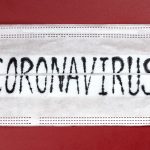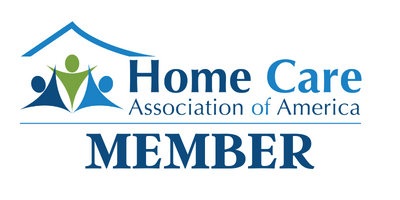We do not share this information to spread unnecessary fear or panic, but rather to aid our clients in remaining informed regarding how the spread of COVID-19 can be avoided, and in an effort to protect our older adults and those at higher risk for the virus.
The Centers for Disease Control (CDC) has identified older adults, and people who have severe chronic medical conditions like heart, lung, or kidney disease, at higher risk for more serious COVID-19 illness. According to the CDC, early data suggest older people are twice as likely to have serious COVID-19 illness.
The higher risk to older adults is likely because as people age, their immune systems change and can become more compromised, making it harder for their body to fight off diseases and infection. Because many older adults are also more likely to have underlying health conditions that make it harder to cope with and recover from illness, contracting COVID-19 is a greater concern.
Caregivers – spouses, family members, and professionals assisting older and at-risk adults – have more on their shoulders than usual. Beyond the daily demand of care and keeping an older adult safe, caregivers now need to be sure they are taking every necessary precaution to protect themselves and those in their care from exposure to the coronavirus.
The CDC is recommending that people at higher risk, and those responsible for their daily care, take the following actions:
- Stay at home as much as possible.
- Make sure you have access to several weeks of medications, food, and supplies in case you need to stay home for prolonged periods of time.
- When you go out in public, keep away from others who are sick, limit close contact, and wash your hands often.
- Avoid crowds.
- Stay up to date on CDC Travel Health Notices.
Anthony S. Fauci, M.D., Director of the National Institute of Allergy and Infectious Diseases, said that people with serious chronic conditions, especially the elderly, should think twice about traveling or going to crowded places. He advised that these individuals take the simple steps of “not putting yourself in a situation—whatever that might be—that might increase the risk given your situation.”
The CDC is urging individuals to stay calm and Share Facts, Not Fear. Among the CDC’s advice are these common-sense tips:
- Wash your hands often with soap and water for at least 20 seconds, especially after going to the bathroom; before eating; and after blowing your nose, coughing, or sneezing.
- Avoid touching your eyes, nose, and mouth with unwashed hands.
- Stay home when you are sick.
- Cover your cough or sneeze with a tissue, then throw the tissue in the trash.
How to Support Older Adults during the COVID-19 Pandemic
People of all ages can support older adults during this time. Many older adults depend on services and supports provided in their homes or in the community to maintain their health and independence.
The CDC recommends that family members, neighbors, and caregivers:
- Know what medications your loved one is taking and see if you can help them have extra on hand.
- Monitor food and other medical supplies (oxygen, incontinence, dialysis, wound care) needed and create a back-up plan.
- Stock up on non-perishable food items to have on hand in your home to minimize trips to stores.
- If you care for a loved one living in a care facility, monitor the situation, ask about the health of the other residents frequently, and know the protocol if there is an outbreak.
Tips for Dementia Caregivers in the Home
Caregivers of individuals living with Alzheimer’s and all other dementia should follow guidelines from the CDC, and consider the following tips:
- For people living with dementia, increased confusion is often the first symptom of any illness. If a person living with dementia shows rapidly increased confusion, contact your health care provider for advice. Unless the person is having difficulty breathing or a very high fever, it is recommended that you call your health care provider instead of going directly to an emergency room. Your doctor may be able to treat the person without a visit to the hospital.
- People living with dementia may need extra and/or written reminders and support to remember important hygienic practices from one day to the next.
- Consider placing signs in the bathroom and elsewhere to remind people with dementia to wash their hands with soap for 20 seconds.
- Demonstrate good habits with your own handwashing.
- Alcohol-based hand sanitizer with at least 60% alcohol can be a quick alternative to handwashing if the person with dementia cannot get to a sink or wash his/her hands easily.
- Ask your pharmacist or doctor about filling prescriptions for a greater number of days to reduce trips to the pharmacy.
Think ahead and make alternative plans for the person with dementia should adult day care, respite, etc. be modified or cancelled in response to COVID-19.
Think ahead and make alternative plans for care management if the primary caregiver should become sick.
Beware of Scams
Unfortunately, scammers are taking advantage of fears surrounding the coronavirus. The Federal Trade Commission has identified several of them and is offering tips to protect yourself and others. These include watching for emails claiming to be from the CDC saying they have information about the virus and ignoring online offers for vaccinations. There currently are no vaccines, pills, potions, lotions, lozenges, or other prescription or over-the-counter products available to treat or cure COVID-19 online or in stores.
If you receive an email asking you to donate to a nonprofit that is fighting the coronavirus, make sure to research the organization first through an independent charity rating service such as Charity Navigator.
Remember the Seasonal Flu, Too
It’s also important to remember that we are still in the middle of the seasonal flu season, which impacts older adults every year. According to the CDC, it’s estimated that 70-85% of seasonal flu-related deaths have occurred in people aged 65+.
While there is no vaccine for the coronavirus, it’s never too late for individuals to get their annual flu shot. Talk to your doctor or pharmacist about how you can protect yourself and those around you.
With COVID-19 and all health issues, when in doubt, the best course forward is always to consult with your doctor. Many physicians and health care providers are asking that people call or send their questions via email first before coming into the office.
Arcadia is here to assist with medical and personal caregiving.
At Arcadia New England, we are open and remain available to assist with the daily care needs of seniors and others needing assistance in their homes. Our caregivers are local, trained healthcare and comfort-care professionals who provide necessary care services and personal assistance in our client’s homes.
Please do not hesitate to contact us if we can assist you in any way.
Additional Resources:
Centers for Disease Control and Prevention Coronavirus Disease 2019 (COVID-19) Homepage
Centers for Disease Control and Prevention Higher Risk & Special Populations
NCOA – Coronavirus: What Older Adults Need to Know
FDA and FTC Warn Seven Companies Selling Fraudulent Products that Claim to Treat or Prevent COVID-19
MaineHealth Coronavirus (COVID-19) Updates and Information
Maine Council on Aging Daily COVID-19 Email Updates Sign-Up Form


